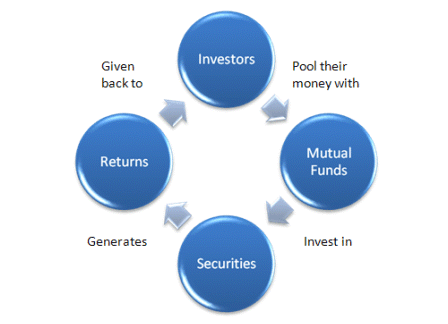Every individual looks for expanding his/her investment portfolio. With a variety of investment options available in the market, it often becomes difficult to choose which investment one should opt for.
There are a lot of financial characteristics to consider before building your investment portfolio. These things include tax rates, liquidity, gains, etc.
Real estate investing can be a major impetus to your financial portfolio. It can quite literally accelerate your journey to riches if done correctly.
Most of the time, real estate investing is often associated with owning properties and leasing them out. However, there is more to real estate investing than just this. Real Estate Investment Trusts (REIT) are an important component of real estate investing.
What is a REIT?
The full form of REIT is Real Estate Investment Trust.
It is just like a mutual fund. So this brings us to our question, what is a mutual fund?
Mutual funds essentially make use of pooled money from a variety of investors to buy financial assets like stocks, bonds, etc. Then, the gains from these financial assets are divided proportionately among the mutual fund investors.
Similarly, REIT pools money from a variety of investors to buy real estate and then generate income. It allows individual investors to earn a portion of that income-producing real estate.
These real estate portfolios are made with multiple property types. REIT indulges in buying properties and leasing the real estate to other companies/individuals. The income which is generated as a result of leasing out or selling is then distributed proportionately among shareholders.
Also, REIT is specific to one particular locality of the town/city. Therefore, you must choose the specific location you prefer to invest in.
Also, REIT is of different types, categorized into many sections including medical REIT, office REIT, residential REIT, retail REIT, etc.
Healthcare REIT includes nursing homes, medical offices, hospitals, and clinics. Office REIT includes business offices, business districts, etc. Hence, there are a lot of varieties of which REIT available in the market.
Advantages of REIT
Everything in life has advantages and disadvantages just like it is said there are two sides to everything: a bright and a dark side.
Any and every financial decision requires careful analysis before investing. Gauging the pros and cons before going for REIT is very fundamental.
These are some of the advantages of REITs:
Diversification
Diversification is the key mantra underlying investing.
One of the first things to keep in mind while building an investment portfolio is to diversify it. The old saying, “Don’t put all your eggs in one basket” holds true here.
Putting all your money into a single investment is never a good idea.
Rather than investing in one stock or one mutual fund, investing in various assets is a better way to guard against market fluctuations. REITs are very similar to mutual funds in their approach and thus are a good option to add to your investment portfolio.
Time
REITs can prove to be very good investment options when invested in for a long period of time. Also, REITs come with a lot of time flexibility.
Investing for long-term should be your priority if you wish to earn some major gains.
Liquidity
While it is easy to believe that selling houses is difficult, it is not entirely true.
When you invest in a REIT, selling houses and getting back your money is way easier. It is a relatively liquid way of investing in real estate.
Simple Tax Calculation
The gains on REIT are charged for taxes just like other incomes. There is no complexity in the calculation of taxes and the whole procedure is really simple.
Disadvantages of REIT
While there are a lot of convincing arguments in favor of REIT, there are certain downsides to it as well. Before investing, one should think about the downside as well. Here are some disadvantages or drawbacks:
Property Taxes
While property taxes would not affect you directly as an investor in REIT, they would however have an indirect bearing on your gains.
How?
Because property taxes can decrease the earnings you get from the REIT.
Also, property taxes vary from place to place. So you must keep a check on the property rates in the locality you are willing to invest.
Interest Rates
Whenever interest rates go up, REIT prices dip. While some people may consider this as an opportunity to sell and earn good money, it is important to keep in mind your long-term investment goals.
The decision to sell or hold your REIT should be based on your financial goals rather than the market situation.
Tax
The gain from REITs is often considered as an ordinary income instead of as a capital gain. Hence, the gains from your REIT are charged at a higher tax rate than capital gains.
How to proceed with REIT?
Now that you’ve gauged the advantages and disadvantages of REITs, you can choose whether it’s a good option for you to invest in.
But how would you approach REIT?
Research
Similar to any financial investment, you must do an ample amount of research. Read about which companies are better, which REITs give better returns, and which localities are better to invest in.
REITs or Mutual Funds that invest in REITs
You can either invest directly in REITs or choose to invest in mutual funds which then invest in REITs further. The second approach is better for those looking for little effort and greater gains.
Conclusion
On the off chance, you are looking to increase your income level and up your investment game, Real Estate Investment Trust is made for you.
Turbocharge your investments with this simple technique. If you have big-time aspirations for your financial situation, it is time to diversify your portfolio with real estate.
If you are willing to invest in real estate but wish to avoid its high risk, lack of liquidity, etc., then you must opt for REIT after carefully analyzing its pros and cons.
I hope this helped!






